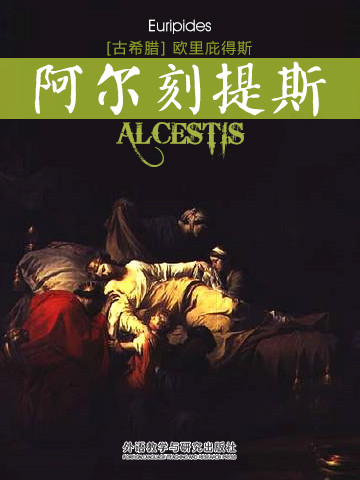A play by Euripides who was the last of the three great tragedians of Classical Athens. His plays seem modern by comparison with those of his contemporaries, focusing on the inner lives and motives of his characters in a way previously unknown to Greek audiences.
《阿尔刻提斯》是欧里庇得斯的早期的戏剧。这部戏剧在当时并没有获得多大成功,在后世的知名度也远远不及他的《美狄亚》和《酒神狂女》。长期以来,对这部戏剧的批评研究多数是从女权和伦理的角度。
Alcestis is an Athenian tragedy by the ancient Greek playwright Euripides. It was first produced at the City Dionysia festival in 438 BCE. Euripides presented it as the final part of a tetralogy of unconnected plays in the competition of tragedies, for which he won second prize; this arrangement was exceptional, as the fourth part was normally a satyr play. Its ambiguous, tragicomic tone—which may be “cheerfully romantic” or “bitterly ironic”—has earned it the label of a “problem play.” Alcestis is, possibly excepting the Rhesus, the oldest surviving work by Euripides, although at the time of its first performance he had been producing plays for 17 years.
- ALCESTIS
- 书评 写书评
- 笔记
-
书评加载中...













 京公网安备 11010802032529号
京公网安备 11010802032529号
笔记加载中...